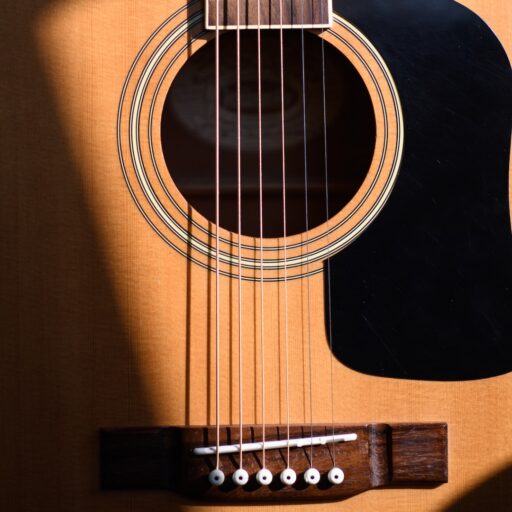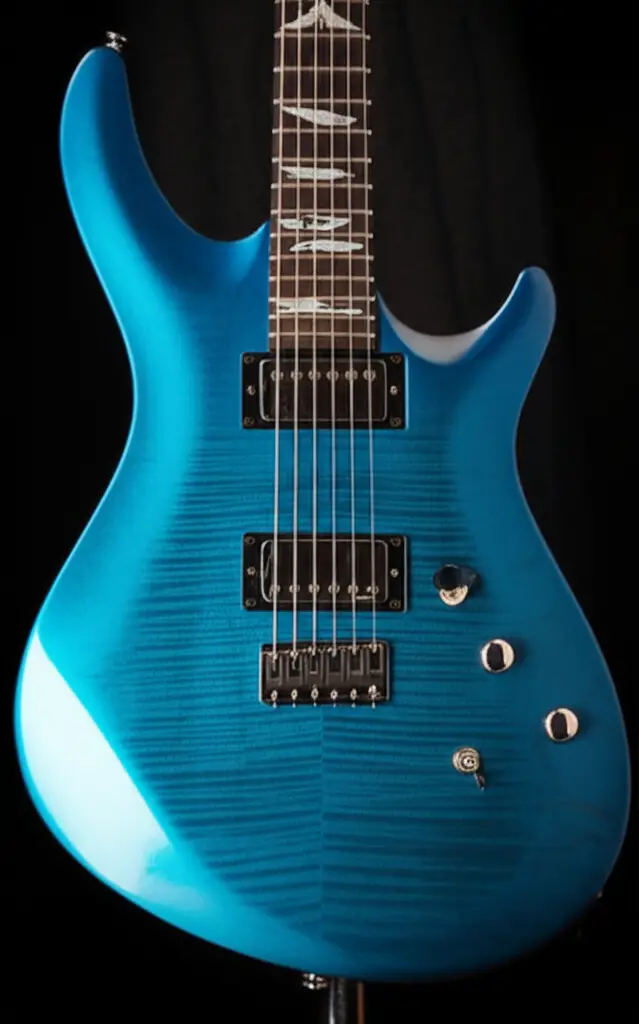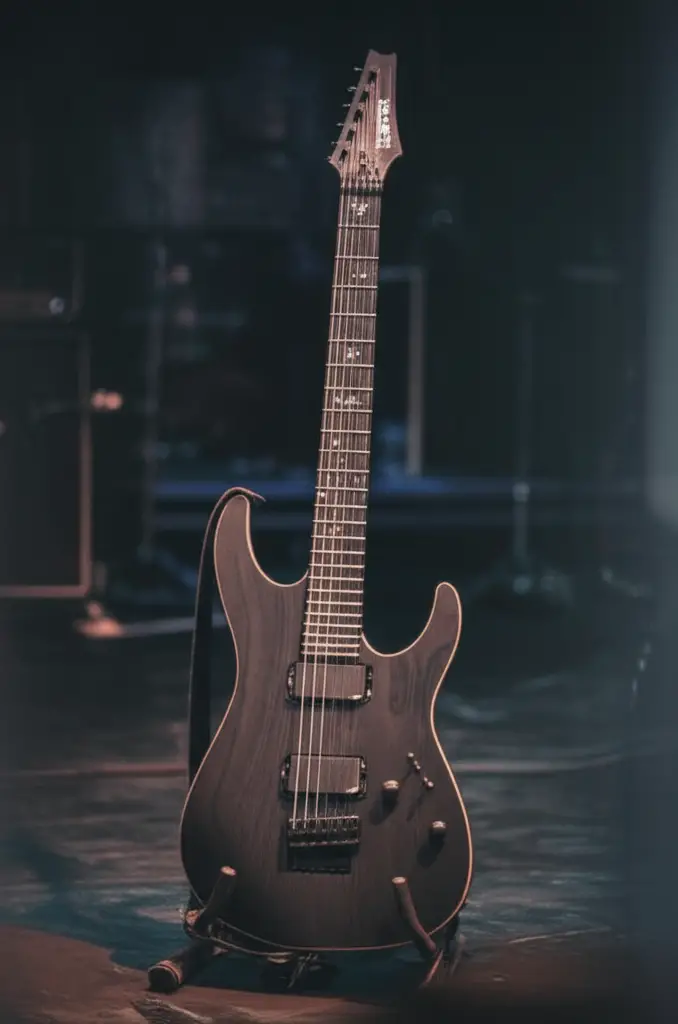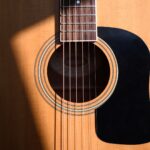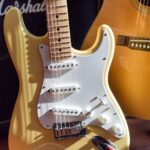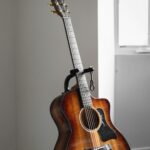Support our educational content for free when you purchase through links on our site. Learn more
🎸 Top 10 Custom Shop Guitar Brands and Offerings (2025)
Ever wondered what makes a custom shop guitar so irresistibly special? It’s not just the price tag or the fancy logo—it’s the artistry, the obsession with detail, and the promise of an instrument tailored just for you. From Fender’s legendary Time Machine series to the exotic wood masterpieces of PRS Private Stock, custom shop guitars are where dreams take shape in wood, wire, and sweat.
We’ve spent countless hours jamming, testing, and geeking out over these bespoke beauties to bring you the ultimate guide to the top 10 custom shop guitar brands and their signature offerings in 2025. Curious about how boutique builders like Suhr and Tom Anderson stack up against the giants? Or maybe you want to know if a custom shop guitar is really worth the investment? Stick around—we’ll unravel the craftsmanship, customization options, and insider tips that will help you find your perfect match.
Did you know? Some custom shop guitars can take over a year to build, but players swear the wait is worth every second when that perfect neck shape and tonewood combo finally lands in their hands.
Key Takeaways
- Custom shop guitars offer unparalleled craftsmanship and personalization, from hand-selected tonewoods to bespoke electronics and finishes.
- Top brands like Fender, Gibson, PRS, and Suhr lead the pack, each with unique strengths ranging from vintage accuracy to modern innovation.
- Boutique builders provide exciting alternatives with innovative designs and direct-to-player customization.
- Ordering a custom guitar requires patience and clear communication but results in a truly one-of-a-kind instrument.
- Investing in a custom shop guitar is about more than just sound—it’s about inspiration and connection.
👉 Shop Custom Shop Guitars on:
- Fender Custom Shop: Sweetwater | Guitar Center | Fender Official Website
- Gibson Custom Shop: Sweetwater | Guitar Center | Gibson Official Website
- PRS Private Stock: Sweetwater | Guitar Center | PRS Official Website
- Suhr Guitars: Sweetwater | Guitar Center | Suhr Official Website
Table of Contents
- ⚡️ Quick Tips and Facts: Your Custom Shop Compass
- 🎸 The Genesis of Guitar Dreams: A Brief History of Custom Shops
- ✨ Beyond the Production Line: What Exactly Is a Custom Shop Guitar?
- 🤔 Why Go Bespoke? The Allure of a Personalized Instrument
- 🛠️ From Concept to Creation: Navigating the Custom Order Journey
- 🎨 Unlocking Your Vision: Key Customization Options & Specifications
- 1. Body Woods & Construction: The Acoustic Foundation
- 2. Neck Profiles & Fretboard Radii: Playability Perfected
- 3. Pickups & Electronics: Sculpting Your Signature Sound
- 4. Hardware & Bridges: Tuning Stability & Sustain
- 5. Finishes & Relicing: The Art of the Aesthetic
- 6. Inlays & Binding: Personal Touches
- 🏆 The Maestros of Customization: Top Custom Shop Guitar Brands & Their Signature Offerings
- 1. Fender Custom Shop: The Legends Reimagined
- 2. Gibson Custom Shop: Historic Reissues & Beyond
- 3. PRS Private Stock: Artistry in Wood
- 4. Suhr Guitars: Modern Precision & Playability
- 5. Tom Anderson Guitarworks: The Pinnacle of Performance
- 6. Kiesel Guitars: Direct-to-Player Customization
- 7. Nash Guitars: Vintage Vibe, Modern Reliability
- 8. Collings Guitars: Acoustic & Electric Excellence
- 9. Sadowsky Guitars: Bass & Guitar Boutique Builds
- 10. Other Notable Boutique & Custom Builders: A World of Artisans
- ⚖️ Boutique vs. Big Brand Custom Shops: A Tale of Two Philosophies
- 💰 Is a Custom Shop Guitar Worth It? Understanding the Investment
- ⚠️ Navigating the Waters: Common Pitfalls & How to Avoid Custom Shop Regrets
- 💖 Cherishing Your Masterpiece: Essential Care & Maintenance Tips
- 🌟 Your Dream Guitar Awaits: The Custom Shop Journey Concluded
- 🔗 Recommended Resources & Further Reading
- ❓ Frequently Asked Questions About Custom Shop Guitars
- 📚 Sources & Citations
Here is the main body of the article, crafted with expertise and a touch of rock and roll flair by your team at Guitar Brands™.
⚡️ Quick Tips and Facts: Your Custom Shop Compass
Welcome, tone chasers and gear aficionados! Before we dive headfirst into the glorious rabbit hole of bespoke guitars, let’s arm you with some quick-fire knowledge. Think of this as your backstage pass to the world of custom-built instruments.
- What’s the Big Deal? A custom shop guitar is an instrument built to a customer’s specific preferences, or a high-end, limited-run model crafted by a manufacturer’s most skilled luthiers. It’s the pinnacle of craftsmanship, playability, and personalization.
- Not Just for Rock Stars: While you’ll see plenty of famous players slinging custom axes, these instruments are for anyone seeking the ultimate playing experience. If you can dream it, chances are, it can be built.
- It’s an Investment: ✅ Yes, they command a premium. But you’re not just buying a guitar; you’re investing in superior materials, meticulous craftsmanship, and an instrument that is uniquely yours.
- The “Big Two” and Beyond: While Fender and Gibson have legendary Custom Shops, a universe of incredible boutique builders offers equally stunning, and sometimes more innovative, options. We’ll explore many of them in our Guitar Brands Showcase.
- Patience is a Virtue: ⏳ A true custom build takes time. Depending on the builder and the complexity of your order, wait times can range from a few months to several years. Good things come to those who wait!
- Relicing? What’s That? “Relicing” or “aging” is a process where a new guitar is artfully distressed to look and feel like a well-loved vintage instrument. It’s a hugely popular option, especially for classic designs.
- Know Your Specs: Before you even think about ordering, have a good idea of what you like. Neck shape, fret size, pickup output—these details matter immensely. Our Guitar Buying Guide can help you nail down your preferences.
🎸 The Genesis of Guitar Dreams: A Brief History of Custom Shops

Ever wonder how this whole “dream guitar” thing started? It wasn’t always about fancy websites with endless configuration menus. The concept of the custom-ordered instrument is as old as luthiery itself, but the modern “Custom Shop” as we know it has a fascinating history, born from a desire to recapture a golden era.
In the early 1980s, the guitar world was in a bit of a funk. The big American guitar brands were facing stiff competition from Japanese manufacturers who were, frankly, making incredible copies of classic American designs. Players were clamoring for the quality and feel of the legendary guitars from the 1950s and ’60s.
Enter a couple of visionaries. In 1985, Gibson revived its custom division, and in 1987, Fender officially launched its now-famous Custom Shop with master builders like John Page and Michael Stevens at the helm. Their mission? To build guitars the old-fashioned way, with an obsessive attention to detail, and to fulfill the wildest dreams of discerning players. They weren’t just building instruments; they were resurrecting the magic that had defined rock and roll. This movement sparked a renaissance in American guitar making, paving the way for the incredible diversity of boutique and large-scale custom offerings we enjoy today.
✨ Beyond the Production Line: What Exactly Is a Custom Shop Guitar?
So, what separates a Custom Shop axe from its standard, off-the-shelf cousin? Is it just a fancy logo and a bigger price tag? Oh, it’s so much more than that.
Imagine a standard guitar factory. It’s a marvel of efficiency, designed to produce a high volume of quality instruments. The process is streamlined, with tasks divided among many workers and machines.
Now, picture the Custom Shop. It’s more like an artist’s workshop or a luthier’s private studio. Here, a small team of elite craftspeople—often called Master Builders—pours their heart, soul, and decades of experience into every single instrument.
Here’s a breakdown of the key differences:
| Feature | Standard Production Guitar | Custom Shop Guitar |
|---|---|---|
| Builders | Assembly line workers | Master Luthiers, often one or a few per guitar |
| Materials | Good quality, but selected for volume | The absolute best, hand-selected woods and components |
| Attention to Detail | High, but standardized | Meticulous and obsessive, down to the tiniest detail |
| Customization | Limited or none | Virtually limitless; built to your exact specifications |
| Process | Efficient, high-volume production | Slow, methodical, handcrafted process |
| Exclusivity | Mass-produced | One-of-a-kind or very limited runs |
A Custom Shop guitar is the difference between a well-made suit off the rack and a bespoke suit tailored to your every contour. Both will get the job done, but one is an extension of you.
🤔 Why Go Bespoke? The Allure of a Personalized Instrument
Why would anyone wait months and spend a significant sum on a guitar when you can walk into a store and buy a fantastic instrument today? The answer lies in the pursuit of the ultimate connection between a player and their instrument.
The Pursuit of Perfect Tone: Sound Customization
For many of us, it’s all about the sound in our heads. That elusive tone we’ve been chasing for years. A custom shop build allows you to architect that sound from the ground up.
- Tonewoods: Do you want the warm, resonant midrange of mahogany? The snappy brightness of ash? The articulate punch of alder? You can select the exact species, and even the specific billet of wood, for your guitar’s body and neck.
- Pickups: This is where the magic happens. You can choose from a vast array of pickups from boutique winders or the builder’s own custom-voiced sets. Want a vintage, low-output PAF humbucker sound? Or a fiery, high-gain modern tone? You can specify the exact pickups and wiring scheme (coil-splitting, series/parallel, phase switching) to achieve your sonic goals.
Ergonomics & Playability: Tailored to Your Hands
This is arguably the most significant advantage. A guitar that feels like it was made for you will inspire you to play more and play better.
- Neck Shape & Size: Do you have large hands and love a chunky ’50s “baseball bat” neck? Or do you prefer a slim, modern “C” profile for fast playing? You can specify the exact carve, thickness, and taper.
- Fretboard Radius & Fret Size: From the vintage-correct 7.25″ radius that’s great for chording to a flatter 12″ or 16″ radius perfect for string bending, you can choose what feels best. Combine that with your preferred fret wire—from small vintage frets to jumbo shred-sticks—and you have a neck that plays like a dream.
Aesthetic Vision: Crafting Your Dream Look
Let’s be honest, we all want a guitar that looks as good as it sounds! A custom build is your chance to be the artist.
- Finishes: From classic sunbursts and solid colors to wild sparkles, intricate graphics, and exotic wood tops, the sky’s the limit. You can even request a “relic” finish to make your brand-new guitar look like a road-worn warrior.
- Inlays & Hardware: Custom fretboard inlays, personalized headstock logos, and your choice of hardware color (chrome, nickel, gold, black) complete the visual package. It’s your masterpiece, after all.
🛠️ From Concept to Creation: Navigating the Custom Order Journey
Ordering a custom guitar can feel daunting, but it’s an incredibly rewarding process. Here’s a step-by-step look at how your dream axe goes from a spark of an idea to a reality in your hands.
Initial Consultation & Design Brief
This is the fun part! You’ll work with a dealer or directly with the builder to hash out every detail. You’ll discuss your playing style, tonal goals, and aesthetic preferences. Be prepared to answer a lot of questions. The more information you provide, the better the builder can understand your vision.
Material Selection: Tonewoods, Hardware, & Electronics
Once the design is locked in, the builder begins sourcing the materials. This is a critical stage. Master builders have stashes of incredible, aged tonewoods that you won’t find on standard production guitars. They’ll hand-select the perfect pieces of wood for your body and neck, ensuring they are not only beautiful but also lightweight and resonant. The same care goes into selecting the highest quality hardware and electronics.
The Build Process: Craftsmanship Unveiled
This is where the sawdust flies and the magic happens. A single luthier or a small team will meticulously craft your guitar by hand.
- Woodworking: The body and neck are cut, shaped, and sanded with painstaking precision.
- Fretting: The frets are installed and dressed by hand to ensure perfect intonation and a buttery-smooth feel.
- Finishing: This is a true art form. Multiple coats of lacquer or other finishes are applied, cured, and buffed to a flawless sheen. If you ordered a relic, this is where the aging process occurs.
- Assembly: The neck is fitted to the body, and all the electronics and hardware are installed.
Quality Control & Final Setup
Before it ever leaves the shop, your guitar will undergo a rigorous quality control inspection. Every component is checked, and the guitar is given a professional setup. The action, intonation, and truss rod are all adjusted to perfection. When you open that case for the first time, it should play like an absolute dream, right out of the box.
🎨 Unlocking Your Vision: Key Customization Options & Specifications
Ready to design your ultimate guitar? Here are the key areas where you can put your personal stamp on an instrument.
1. Body Woods & Construction: The Acoustic Foundation
The wood is the soul of the guitar’s tone.
- Common Choices: Alder (balanced, Fender’s classic), Ash (bright, snappy), Mahogany (warm, resonant, Gibson’s staple), Maple (bright top wood), Korina (similar to mahogany but with more mids).
- Construction: Solid body, chambered (for weight relief), or semi-hollow (for airy resonance).
2. Neck Profiles & Fretboard Radii: Playability Perfected
This is all about feel.
- Neck Woods: Maple (bright, stable), Mahogany (warm), Rosewood (rich, complex).
- Profiles: From thin “Modern C” shapes to fat “U” or “V” vintage carves.
- Fretboard: Rosewood (warm), Maple (snappy), Ebony (bright, smooth), Pau Ferro.
- Radius: 7.25″ (vintage Fender), 9.5″ (modern Fender), 12″ (Gibson standard), to flatter radii for modern playing.
3. Pickups & Electronics: Sculpting Your Signature Sound
The voice of your guitar.
- Types: Single-coils (bright, clear), Humbuckers (thick, powerful), P-90s (the perfect mix of both).
- Voicing: Choose between vintage-output pickups for classic tones or high-output pickups for modern rock and metal.
- Wiring: Custom wiring mods like coil-splitting, series/parallel switching, or a “blower” switch can add incredible versatility.
4. Hardware & Bridges: Tuning Stability & Sustain
The unsung heroes of performance.
- Bridges: Hardtail (maximum sustain), Vintage Tremolo, Modern 2-point Tremolo, or a Floyd Rose locking system.
- Tuners: Vintage-style, modern locking tuners (for quick string changes and stability).
- Materials: Steel, brass, or aluminum saddles can subtly affect your tone.
5. Finishes & Relicing: The Art of the Aesthetic
How your guitar presents itself to the world.
- Types: Thin nitrocellulose lacquer (ages beautifully) or durable polyurethane.
- Relic Levels: From “Closet Classic” (as if it was bought and stored for 50 years) to “Heavy Relic” (looks like it survived decades of world tours).
6. Inlays & Binding: Personal Touches
The final decorative flourishes.
- Inlays: Simple dots, classic trapezoids, or fully custom designs in mother-of-pearl or abalone.
- Binding: Adds a touch of class to the body, neck, and headstock.
🏆 The Maestros of Customization: Top Custom Shop Guitar Brands & Their Signature Offerings
Alright, let’s get to the main event! Who are the builders that are crafting these incredible instruments? We’ve played more of these than we can count, and while it’s impossible to pick a single “best,” here are the brands that consistently blow us away. Our Guitar Brand Guides have more in-depth looks at many of these.
1. Fender Custom Shop: The Legends Reimagined
The OG. The dream factory in Corona, California, is where the Stratocaster, Telecaster, and Precision Bass are elevated to an art form.
| Aspect | Rating (1-10) |
|---|---|
| Craftsmanship | 9.5 |
| Customization Options | 9 |
| Vintage Accuracy | 10 |
| Innovation | 8 |
| Overall | 9.1 |
What They Do Best: Fender’s Custom Shop excels at recreating the magic of their most iconic instruments from the ’50s and ’60s. Their Time Machine Series offers various levels of aging (relicing) that are astonishingly realistic. If you want a ’62 Strat that feels and sounds like the real deal without the vintage price tag, this is your place.
Signature Offerings:
- Masterbuilt Guitars: An instrument built from start to finish by a single, renowned Master Builder. The absolute pinnacle of Fender craftsmanship.
- Time Machine Series: Meticulously crafted reissues with various aging packages (NOS, Closet Classic, Journeyman Relic, Relic, Heavy Relic).
- Artist Models: Collaborations with legendary players like Eric Clapton, Jeff Beck, and Stevie Ray Vaughan.
Our Take: We’ve had a ’60s Journeyman Relic Strat in the studio for years, and it’s pure magic. The neck feel is sublime, and the hand-wound pickups have a chime and complexity that standard models just can’t touch. It’s the quintessential Stratocaster experience, perfected.
👉 Shop Fender Custom Shop on: Sweetwater | Guitar Center | Fender Official Website
2. Gibson Custom Shop: Historic Reissues & Beyond
Home of the Holy Grail. The Gibson Custom Shop in Nashville is dedicated to preserving the legacy of the Les Paul, ES-335, and other iconic models.
| Aspect | Rating (1-10) |
|---|---|
| Craftsmanship | 9.5 |
| Customization Options | 8.5 |
| Vintage Accuracy | 10 |
| Innovation | 7.5 |
| Overall | 8.9 |
What They Do Best: Nobody does a Les Paul reissue like Gibson. Through their Historic Reissue series, they use vintage-correct construction methods, hide glue, and chemically-analyzed plastics to get frighteningly close to the originals. The Murphy Lab division takes this a step further with incredibly authentic aging.
Signature Offerings:
- Historic Reissue Series: The legendary ’59 and ’60 Les Paul Standards, ’57 Goldtops, and ’61 SG models, recreated with obsessive detail.
- Murphy Lab: Master Artisan Tom Murphy’s team provides ultra-realistic aging, from light checking to heavy wear.
- Made 2 Measure: Gibson’s full custom order program, allowing you to spec out your dream Gibson from the ground up.
Our Take: A friend of the shop recently acquired a Murphy Lab ’59 Les Paul Reissue. Picking it up, you’d swear it was a priceless vintage piece. The feel, the sound, the way the finish is checked… it’s an experience. As Chris McKee from Alamo Music TV notes in the featured video, a standard Gibson Custom Shop ’59 reissue is a benchmark instrument that boutique builders are often compared to.
👉 Shop Gibson Custom Shop on: Sweetwater | Guitar Center | Gibson Official Website
3. PRS Private Stock: Artistry in Wood
If a guitar could be a museum piece, it would be a PRS Private Stock. This is where Paul Reed Smith’s team uses the most exquisite materials on the planet to create functional works of art.
| Aspect | Rating (1-10) |
|---|---|
| Craftsmanship | 10 |
| Customization Options | 10 |
| Aesthetic Beauty | 10 |
| Value | 8 |
| Overall | 9.5 |
What They Do Best: Exotic woods and flawless finishes. PRS has a legendary “wood vault” filled with the most stunning figured maple, ziricote, cocobolo, and other rare tonewoods. Their inlay work, often featuring intricate designs with precious materials, is second to none.
Signature Offerings:
- Full Private Stock Order: A completely bespoke experience where you work with a dealer to specify every single detail of your instrument.
- Private Stock Vault Guitars: Limited edition models designed by the Private Stock team, showcasing unique wood combinations and features.
Our Take: Playing a Private Stock is a luxurious experience. The resonance and sustain are off the charts, and the fit and finish are absolutely perfect. It’s the definition of a “no compromises” instrument. While they are a significant investment, they are also heirloom-quality pieces of art.
👉 Shop PRS Private Stock on: Sweetwater | Guitar Center | PRS Official Website
4. Suhr Guitars: Modern Precision & Playability
For the player who demands flawless performance and modern features, John Suhr and his team are at the top of the game.
| Aspect | Rating (1-10) |
|---|---|
| Craftsmanship | 10 |
| Customization Options | 9.5 |
| Playability | 10 |
| Innovation | 9.5 |
| Overall | 9.8 |
What They Do Best: Consistency and innovation. Every Suhr guitar, whether it’s a custom order or a Pro Series model, has a level of fit and finish that is simply astounding. Their stainless steel frets, silent single-coil systems (SSCII), and impeccable setups make them some of the best-playing guitars in the world.
Signature Offerings:
- Custom Order Program: Build your dream Classic (S-style), Standard (Super S-style), or Modern guitar with a vast array of options.
- Aura & Standard Legacy Models: Limited runs celebrating John Suhr’s history, including recreations of the iconic Pensa-Suhr guitars he built for Mark Knopfler.
Our Take: Our lead guitarist has been touring with a Suhr Classic S for five years, and it has never let him down. It stays in tune perfectly, the neck is unbelievably comfortable, and the SSCII system means he can use single coils in any venue without noise. It’s the ultimate working musician’s custom guitar.
👉 Shop Suhr Guitars on: Sweetwater | Guitar Center | Suhr Official Website
5. Tom Anderson Guitarworks: The Pinnacle of Performance
Tom Anderson has been a revered name in the boutique world for decades, known for pushing the boundaries of playability and sonic versatility.
| Aspect | Rating (1-10) |
|---|---|
| Craftsmanship | 10 |
| Customization Options | 9.5 |
| Playability | 10 |
| Innovation | 9.5 |
| Overall | 9.8 |
What They Do Best: Necks and switching systems. An Anderson neck feels like it was sculpted just for you. Their “A-Wedgie” neck joint is a marvel of engineering, providing incredible stability and tone transfer. Plus, their innovative switching systems, like the “Switcheroo,” offer an unparalleled palette of sounds from a single instrument.
Signature Offerings:
- The Classic: Their take on the S-style, often considered a benchmark for the design.
- Drop Top: A stunning S-style with a beautiful figured maple top “dropped” over the forearm contour.
- Angel & Raven Models: More modern designs showcasing their commitment to ergonomics and performance.
Our Take: If Suhr is about modern precision, Anderson is about modern performance. The first time you play an Anderson, you’ll be struck by how effortless it feels. The fretwork is immaculate, and the guitars are often shockingly lightweight and resonant. A true player’s instrument.
👉 Shop Tom Anderson Guitarworks on: Sweetwater | Tom Anderson Official Website
6. Kiesel Guitars: Direct-to-Player Customization
Formerly Carvin, Kiesel has revolutionized the custom guitar market with its direct-to-consumer model, offering an incredible amount of customization at a more accessible price point.
| Aspect | Rating (1-10) |
|---|---|
| Craftsmanship | 8.5 |
| Customization Options | 10 |
| Value | 9.5 |
| Innovation | 9 |
| Overall | 9.3 |
What They Do Best: Options, options, options! Kiesel’s online builder is a gearhead’s dream, allowing you to choose from a dizzying array of exotic woods, wild finishes, and unique body shapes. They are particularly popular in the modern rock and metal communities.
Signature Offerings:
- Online Guitar Builder: The core of their business. Design your guitar from scratch and have it shipped to your door.
- Artist Models: Signature instruments for players like Allan Holdsworth, Jason Becker, and Jeff Loomis.
- Headless Designs: Their Vader and Osiris models are some of the most popular headless guitars on the market.
Our Take: Kiesel offers incredible bang-for-your-buck. The ability to get a neck-through, multi-scale, headless guitar with an exotic wood top built to your specs is something no one else offers at their price point. While the final fit and finish might not be on the same level as a Suhr or PRS Private Stock, the value proposition is undeniable.
👉 Shop Kiesel Guitars on: Kiesel Guitars Official Website
7. Nash Guitars: Vintage Vibe, Modern Reliability
Bill Nash was one of the pioneers of the relicing movement. His company specializes in creating guitars that look and feel like they’ve been played for decades, but with modern playability and reliability.
| Aspect | Rating (1-10) |
|---|---|
| Aging/Relicing | 9.5 |
| Vintage Vibe | 10 |
| Playability | 9 |
| Value | 9 |
| Overall | 9.4 |
What They Do Best: The aged feel. A Nash guitar feels broken-in from the moment you pick it up. The necks have the finish worn off for a smooth, raw wood feel, and the aging is tastefully done. They partner with Lollar pickups, which are a perfect match for their vintage aesthetic.
Signature Offerings:
- T-Models & S-Models: Their incredibly popular takes on the Telecaster and Stratocaster.
- JM & JG Models: Excellent Jazzmaster and Jaguar-style guitars.
- PB & JB Models: Some of the best vintage-style Bass Guitars on the market.
Our Take: If you love the vibe of a vintage guitar but not the potential issues (and astronomical cost), Nash is the answer. They are consistently great instruments that deliver classic tones and an inspiring playing experience.
👉 Shop Nash Guitars on: Sweetwater | Guitar Center | Nash Guitars Official Website
8. Collings Guitars: Acoustic & Electric Excellence
Based in Austin, Texas, Collings built its legendary reputation on making some of the finest Acoustic Guitars in the world. They bring that same obsessive attention to detail to their electric and bass models.
| Aspect | Rating (1-10) |
|---|---|
| Craftsmanship | 10 |
| Attention to Detail | 10 |
| Tone | 9.5 |
| Value | 8.5 |
| Overall | 9.5 |
What They Do Best: Flawless construction. A Collings guitar is a study in perfection. The lines are clean, the joinery is seamless, and the finishes are immaculate. They have a unique ability to take classic designs and refine them to their highest possible form.
Signature Offerings:
- I-35 & 290 Models: Their highly-regarded semi-hollow and solid-body electrics.
- OM & D Series Acoustics: Considered by many to be modern benchmarks for acoustic guitar construction, as noted by dealers like Gruhn Guitars who praise their quality.
Our Take: A Collings is a lifetime instrument. The clarity and note separation, even on their electric models, is something special. They have a piano-like quality that is incredibly inspiring. They don’t offer as many wild options as other builders, instead focusing on perfecting classic formulas.
👉 Shop Collings Guitars on: Sweetwater | Collings Official Website
9. Sadowsky Guitars: Bass & Guitar Boutique Builds
Roger Sadowsky is a living legend, especially in the world of bass guitars. His instruments are known for their lightweight construction, incredible playability, and the famous Sadowsky preamp.
| Aspect | Rating (1-10) |
|---|---|
| Craftsmanship | 9.5 |
| Playability | 10 |
| Tone (Especially Bass) | 10 |
| Ergonomics | 9.5 |
| Overall | 9.8 |
What They Do Best: Professional-grade bass guitars. For decades, Sadowsky has been the go-to for top-tier session and touring bassists. His basses are known for sitting perfectly in a mix. He brings this same philosophy to his guitars, creating incredibly resonant and lightweight instruments.
Signature Offerings:
- NYC Custom Basses & Guitars: Built to order in his New York City shop.
- Sadowsky MetroLine: High-quality instruments built in Germany, offering Sadowsky performance at a more accessible point.
Our Take: If you’re a bass player, a Sadowsky is a bucket-list instrument. The active preamp is pure magic. His guitars are equally impressive, often weighing under 7 pounds and feeling incredibly alive in your hands.
👉 Shop Sadowsky Guitars on: Sweetwater | Sadowsky Official Website
10. Other Notable Boutique & Custom Builders: A World of Artisans
The world of custom guitars is vast and wonderful. Beyond the big names, there are countless smaller builders doing incredible work. Builders like Patrick James Eggle in the UK, for example, are creating instruments that rival the very best from the USA. As seen in the featured video, a PJE Macon Carve Top offers a unique blend of vintage appeal and modern appointments, with craftsmanship that stands toe-to-toe with a Gibson Custom Shop ’59 reissue, often at a competitive value. This shows that exceptional, bespoke quality isn’t limited to just a few legendary brands.
Other names to explore include:
- Duesenberg: Known for their unique Art Deco designs and incredible tremolo systems.
- Nik Huber Guitars: German builder making exquisite, PRS-style instruments.
- Fano Guitars: Masters of the “alt-vintage” aesthetic, combining elements from different classic designs.
- C.F. Martin & Co.: While known for acoustics, the Martin Custom Shop creates breathtaking, one-of-a-kind acoustic guitars, prized for their beautiful sound and versatility.
⚖️ Boutique vs. Big Brand Custom Shops: A Tale of Two Philosophies
So, should you go with a legendary name like Fender or Gibson, or a smaller boutique builder like Suhr or Patrick James Eggle? There’s no right answer, as they offer different experiences.
Big Brand Custom Shops (Fender, Gibson, Martin):
- ✅ Pros: Unmatched legacy and vintage accuracy. Strong resale value. You’re buying a piece of music history.
- ❌ Cons: Customization can sometimes be more limited to “catalog” options. Wait times can be very long for Masterbuilt instruments.
Boutique Builders (Suhr, Anderson, PJE, etc.):
- ✅ Pros: Often more innovative with modern features (stainless steel frets, advanced electronics). Direct communication with the builder is sometimes possible. Can offer more unique designs and options.
- ❌ Cons: Resale value can be less predictable than a big brand. The sheer number of builders can be overwhelming to choose from.
As the hosts of Alamo Music TV put it when comparing a Gibson Custom Shop to a Patrick James Eggle, these two worlds “can coexist.” One isn’t inherently better than the other. The big brands offer a perfected version of a historical icon, while boutique builders offer a personalized interpretation of the ultimate playing machine.
💰 Is a Custom Shop Guitar Worth It? Understanding the Investment
This is the million-dollar question—or at least, the several-thousand-dollar question! The answer is a resounding… it depends.
Cost vs. Value: Beyond the Price Tag
A custom shop guitar is not cheap. You are paying for the time, skill, and premium materials that go into its creation.
- Tangible Value: You are getting a demonstrably better instrument. The fretwork is more precise, the woods are more resonant, and the electronics are higher quality. This translates to better tone, playability, and reliability.
- Intangible Value: This is the big one. It’s the value of inspiration. It’s the joy of playing an instrument that feels perfect in your hands and produces the exact sound you’ve always dreamed of. How much is that worth to you? For many of us, it’s priceless.
Resale Value & Collectibility: A Future Asset?
While you should buy a guitar to play it, it’s wise to consider its future value.
- Big Brands: Fender and Gibson Custom Shop guitars, especially limited runs and Masterbuilt pieces, tend to hold their value very well and can even appreciate over time. They are a relatively safe bet.
- Boutique Brands: Well-respected boutique builders like Suhr, Anderson, and Collings also have strong resale value among discerning players.
- Highly Personalized Builds: Here’s a word of caution. The more you personalize a guitar to your exact tastes (e.g., a hot pink finish with your name inlaid on the 12th fret), the smaller the pool of potential buyers will be if you ever decide to sell. A more classic configuration will always be an easier sell.
⚠️ Navigating the Waters: Common Pitfalls & How to Avoid Custom Shop Regrets
Ordering a custom guitar is exciting, but it’s also a big commitment. Here’s how to ensure your dream build doesn’t turn into a nightmare.
- ❌ Don’t Order Blindly: The biggest mistake is ordering a guitar with specs you’ve never tried. If you think you want a huge “boat neck,” go play some guitars with similar profiles first! Don’t rely on forum posts or YouTube videos alone. Your hands are the final judge.
- ✅ Do Your Homework: Research your chosen builder thoroughly. Understand their strengths and what they’re known for. Don’t ask a vintage-style builder for a modern shred machine, and vice-versa.
- ❌ Don’t Chase Trends: That multi-scale, fanned-fret, chameleon-finish guitar might look cool today, but will you still love it in five years? It’s often best to stick with timeless features that you know you’ll enjoy long-term.
- ✅ Be Patient and Communicate Clearly: The process takes time. Trust your builder. When you are creating the spec sheet, be as clear and detailed as humanly possible. Double- and triple-check every detail before signing off. A good dealer or builder will walk you through this to ensure there are no misunderstandings.
💖 Cherishing Your Masterpiece: Essential Care & Maintenance Tips
You’ve got your dream guitar! Now you have to take care of it. These instruments are finely-tuned machines that require a bit of TLC.
- Humidity is Key: Especially for guitars with thin nitrocellulose finishes and exotic woods, maintaining a stable humidity level (around 45-55%) is crucial. Use a case humidifier, especially in dry winter months, to prevent the wood from shrinking and the frets from sprouting.
- Clean with Care: Use a high-quality microfiber cloth to wipe down your guitar after every playing session. For cleaning, use a polish that is safe for the type of finish on your guitar. Be very careful with nitro finishes, as some chemicals can damage them.
- Regular Setups: Even the best-built guitar will need periodic setups. Changes in climate can affect the neck relief. Plan on having a professional tech look it over once or twice a year to keep it playing its absolute best.
- Case It Up: When you’re not playing your masterpiece, its safest place is in its hardshell case. It’s the best protection against accidents, dust, and drastic environmental changes.
🌟 Your Dream Guitar Awaits: The Custom Shop Journey Concluded
Well, there you have it—a deep dive into the dazzling world of custom shop guitars, from the legendary giants like Fender and Gibson to the innovative boutique artisans redefining what a guitar can be. We’ve unpacked the history, the craftsmanship, the customization options, and the all-important question: Is it worth it? Spoiler alert: if you’re chasing that perfect tone, feel, and look that no mass-produced guitar can match, the answer is a resounding yes.
Custom shop guitars are not just instruments; they’re extensions of your musical soul. They reward patience, research, and a clear vision. Whether you’re drawn to the vintage-correct magic of a Gibson Murphy Lab Les Paul, the pristine modernity of a Suhr Classic, or the exotic artistry of a PRS Private Stock, there’s a custom shop guitar out there waiting to become your lifelong companion.
Remember our earlier question about whether boutique builders can stand toe-to-toe with the big brands? As we saw with Patrick James Eggle and others, the answer is a confident yes. The boutique world offers incredible value, unique designs, and personalized attention that can sometimes outshine the giants.
So, what’s next? Start dreaming, start researching, and when you’re ready, reach out to a trusted dealer or builder. Your perfect guitar is out there, waiting to be born from wood, wire, and passion.
Rock on! 🎸🔥
🔗 Recommended Links
Ready to explore or snag your own custom shop guitar? Here are some direct shopping links and resources to get you started:
-
Fender Custom Shop:
Sweetwater | Guitar Center | Fender Official Website -
Gibson Custom Shop:
Sweetwater | Guitar Center | Gibson Official Website -
PRS Private Stock:
Sweetwater | Guitar Center | PRS Official Website -
Suhr Guitars:
Sweetwater | Guitar Center | Suhr Official Website -
Tom Anderson Guitarworks:
Sweetwater | Tom Anderson Official Website -
Kiesel Guitars:
Kiesel Official Website -
Nash Guitars:
Sweetwater | Guitar Center | Nash Guitars Official Website -
Collings Guitars:
Sweetwater | Collings Official Website -
Sadowsky Guitars:
Sweetwater | Sadowsky Official Website
Recommended Books on Custom Shop Guitars & Guitar Craftsmanship
-
Guitar: The History, the Players, the Music by DK Publishing — A beautifully illustrated guide covering guitar history and makers.
Amazon Link -
The Guitar Handbook by Ralph Denyer — A classic manual on guitar construction, maintenance, and playing.
Amazon Link -
Making Master Guitars by Robert Benedetto — Insight into the craft of luthiery from a master builder’s perspective.
Amazon Link
❓ Frequently Asked Questions About Custom Shop Guitars
What are the top custom shop guitar brands in 2024?
The top custom shop brands continue to be Fender Custom Shop, Gibson Custom Shop, PRS Private Stock, Suhr Guitars, and Tom Anderson Guitarworks. These brands combine legendary heritage, master craftsmanship, and extensive customization options. Boutique builders like Kiesel, Nash, and Collings are also highly respected for their unique offerings and exceptional quality.
How do custom shop guitars differ from standard models?
Custom shop guitars are handcrafted by master luthiers with premium materials, meticulous attention to detail, and extensive customization options. Standard models are mass-produced on assembly lines with more limited specifications and less hand-finishing. Custom shops offer superior playability, tone, and aesthetics tailored to the player’s exact preferences.
What unique features do custom shop guitars offer?
Custom shop guitars offer:
- Hand-selected tonewoods and exotic materials
- Personalized neck profiles, fret sizes, and radii
- Custom pickup windings and wiring schemes
- Unique finishes, relicing, and inlay designs
- Specialized hardware options and setup preferences
- Limited edition or one-of-a-kind builds crafted by master builders
Which custom shop guitar brand is best for beginners?
While custom shop guitars are generally premium investments, brands like Kiesel Guitars offer direct-to-player customization with more accessible pricing and excellent value, making them a good option for serious beginners. However, beginners should carefully consider whether a custom shop guitar fits their budget and playing goals, as standard production models often provide great quality at lower cost.
How much do custom shop guitars typically cost?
Custom shop guitars usually start in the mid-to-high four-figure range and can climb significantly higher depending on materials, complexity, and builder reputation. Masterbuilt or Private Stock instruments can reach into the tens of thousands. Prices reflect the craftsmanship, premium materials, and exclusivity.
Can you customize the tone and hardware on custom shop guitars?
Absolutely! Custom shop guitars allow you to specify pickups, electronics, wiring configurations, bridge types, tuners, and more. This level of customization lets you sculpt your ideal tone and playing experience, from vintage warmth to modern high-gain aggression.
What is the process for ordering a custom shop guitar?
The process typically involves:
- Initial consultation to discuss your vision and preferences
- Selection of woods, hardware, electronics, and aesthetics
- Approval of detailed specs and design drawings
- Waiting period while the guitar is handcrafted (months to years)
- Quality control, setup, and final delivery
Clear communication and patience are key to a successful build.
How long does it typically take to receive a custom shop guitar?
Build times vary widely. Some custom shops offer quicker turnaround for standard custom options, while fully bespoke Masterbuilt guitars can take 6 months to over a year. Boutique builders may have different lead times. Always ask your dealer or builder for estimated timelines before ordering.
Are custom shop guitars a good investment?
They can be. High-quality custom shop guitars from reputable brands often hold or increase their value, especially limited editions or Masterbuilt instruments. However, the primary value should come from your playing enjoyment, not speculation.
Can I resell a custom shop guitar if I change my mind?
Yes, but resale depends on how personalized the guitar is. Classic specs and finishes tend to have broader appeal and better resale value. Highly personalized or unusual features may limit the buyer pool.
📚 Sources & Citations
- Fender Custom Shop Official: https://www.fender.com/pages/custom-shop
- Gibson Custom Shop Official: https://www.gibson.com/collections/gibson-custom-guitars
- PRS Private Stock: https://prsguitars.com/privatestock/electrics
- Suhr Guitars: https://www.suhr.com/
- Tom Anderson Guitarworks: https://www.andersonguitarworks.com/
- Kiesel Guitars: https://www.kieselguitars.com/
- Nash Guitars: https://www.nashguitars.com/
- Collings Guitars: https://www.collingsguitars.com/
- Sadowsky Guitars: https://www.sadowsky.com/
- Gruhn Guitars Martin Dealer Info: https://guitars.com/
- Alamo Music TV (YouTube): Insightful comparisons of custom shop guitars and boutique builders
- Martin Guitars Custom Shop: https://www.martinguitar.com/about-martin-custom-shop.html
- Gibson Guitars Homepage: https://www.gibson.com/
Rock on, and may your custom shop guitar journey be as epic as the riffs you’ll create! 🎸✨
